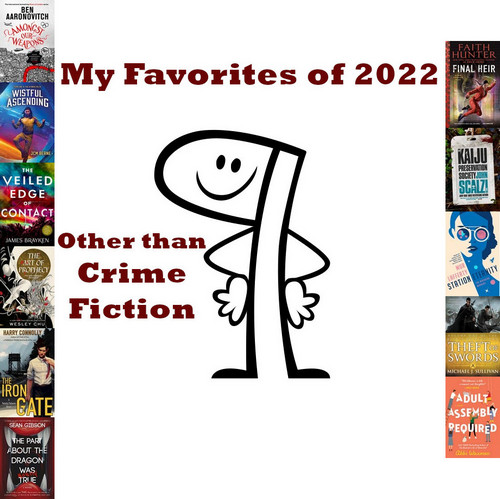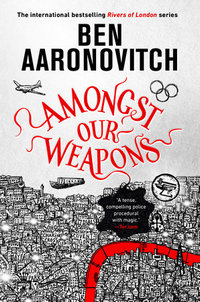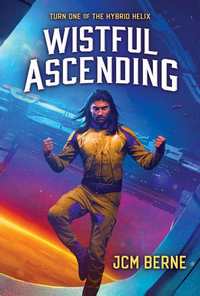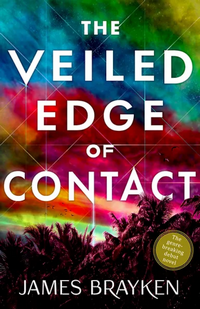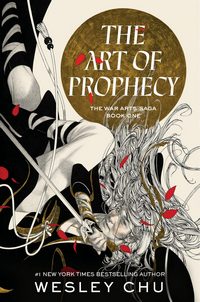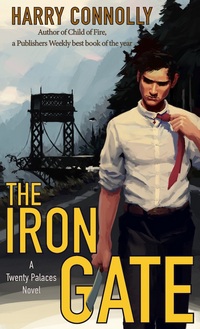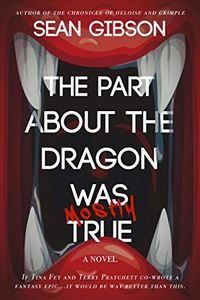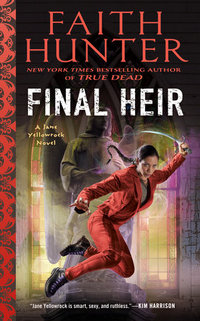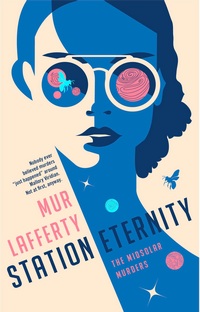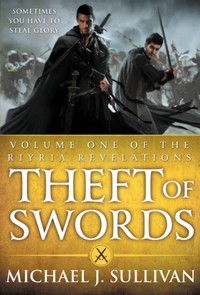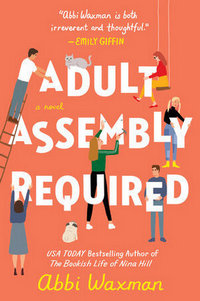1. I don’t think I adequately expressed how good this book is below—it’s always a problem I have when I’m as enthusiastic about a book as I am about this one.
2. I typically post about a pre-publication book less than a month before publication, this is more than three months in advance. I just couldn’t wait that long to read it. See what I said about “enthusiastic” above.
3. Related to #1, I really don’t know if this is all that coherent–I get rambly when I’m this enthusiastic. I’m also not sure I rambled about the right things. You get what you pay for here.
by M.W. Craven
DETAILS:
Series: Ben Koenig, #1
Publisher: Flatiron Books
Publication Date: July 11, 2023
Format: ARC
Length: 405 pgs.
Read Date: March 20-21, 2023

What’s Fearless About?
I’m going to be vague and/or withholding a lot here because Ben Koenig/M.W. Craven will give you the details in a more satisfying manner than I will/can. So live with that—or go order the book. (the better option)
Ben Koenig used to be a U.S. Marshal. Well, he never resigned, so maybe he still is one. But he’s no-showed enough that he probably isn’t anymore. Before he went off-the-grid six years ago, he headed up the Special Operations Group—a task force that went after the worst of the worst on the Marshals’ caseload. They’re the kind of guys that Raylan Givens would call when things got over his head (or hat, I guess).
Koenig literally cannot feel fear—which is a great asset in a situation fraught with danger—it’s also a major problem. Fear keeps people from reckless and foolish moves. A move he might not have made if he’d hesitated a moment (but that he doesn’t regret) put him in a situation where he needed to disappear. No one is better at disappearing than someone who is great at tracking anyone.
But something has happened, and the Marshals have to go to extraordinary lengths to find him. The Director of the Marshals Service, Mitchell Burridge needs his help. Mitch was Ben’s mentor/friend/father figure, so he’d agree to pretty much anything. Mitch’s daughter went missing from her college some weeks ago, and no one has a lead on her—no police force, no Federal agency. Mitch asks Ben to bring his daughter home (at this point, probably her body, but no one admits that out loud). And as for those who took her? Well, that’s also best left unsaid. Ben will address that when it comes time.
As Mitch puts it, Ben’s an apex predator and there’s no one else who can do all of what needs to get done. He may be that, but he’s been acting more like prey for a long time so he makes a few stumbles along the way as he shakes the dust off. But it’s not too long before Koenig catches a scent and starts following it.
That’s an Unfortunate Name
There’s a figure mentioned pretty early on and then repeatedly throughout the book—it takes a while to know if he’s a victim of something, involved in the disappearance, tangentially connected to the abductors, a dupe, or a red herring—or something else entirely. But the name keeps coming up, and it threw me.
The name is Spencer Quinn. Spencer Quinn is also the pen name of Peter Abrahams. Readers of this blog will recognize that name as the author of one of my favorite PI series, The Chet and Bernie Mysteries, among other things. The name is distinctive enough that it jumps out at you—it took me out of the moment each time. In a way that Rob Parker, Pat Cornwall, or Tom Harris might not (or even the non-nickname versions of their names). Will this be a hiccup for anyone who isn’t a Quinn reader? Nope. Was it easy to get over? Yeah, but there’s the instinctual flash of name recognition throughout.
Craven had no idea he was doing this (as I’d assumed, although I’d theorized that he could be a major fan or a major detractor—depending on how things went with the character), although I have to confess I’m a little surprised that no editor stopped him along the way.
Still, it’s a cool name, you can’t blame a guy for wanting to use it. Just ask Peter Abrahams.
Michael Westen-Moments
The show Burn Notice would regularly feature the protagonist giving voice-over lessons on spycraft, weapons, strategy, etc. to the viewer, and that’s the name I inevitably give to moments in thrillers when the first-person narrator, or the protagonist’s thought process described by the third person narrator, breaks down the hero’s decision making, etc.
I love this stuff. Almost every thriller writer has to feed the reader this kind of thing because most of us don’t know how much pressure you have to exert on the trigger of Gun X to get it to fire, or why it’s important that the guy on the left is holding the knife the way he is so the hero knows he’s more dangerous than the larger guy on the right with the shotgun. Sometimes the protagonist—either through confidence (cockiness?) or to help intimidate the opposition—will deliver this in dialogue. I always appreciate the flair that gives.
Ben Koenig is great at this kind of thing. When he Michael Westons his way through the way he approaches a certain building in the final confrontation, why he picks the type of car he does to use on his mission, why he punches this guy the way he does, etc. the reader can actually believe they’ve been given some information they can use in their daily life. You know, the next time they need to drive a car into another state to locate the missing child of their old boss.
But my favorite Michael Westoning in this book—and the scene that hooked me—is early on when Koenig takes time to critique the group of deputies who came to bring him into custody for the way they went about it—location, timing, where the person with the shotgun was standing in relation to everyone else, etc. Sure, Koenig was the one being detained—but there was no doubt who was in control (and who could’ve made everyone’s day much, much worse had he wanted to).
Incidentally, it’s been too many years since I read the book, but you can’t tell me that this scene wasn’t a tip of the hat to Child’s Killing Floor—and a suggestion to the reader that this character is going to be their next Reacher (who is also good at Michael Westoning).
Who Wrote This Again?
I’m not going to try to claim that I’m an expert on M.W. Craven—but I’m fairly familiar with his work (I’ve read 6 of his 7 previously published novels—don’t ask me to explain the missing one). It’s easy to see that the Avison Fluke novels are written by the same author that gave us the Washington Poe novels. This makes sense, it’s fairly common amongst writers of multiple series—no one is surprised to learn that the Mickey Haller books are written by Bosch’s creator; the Sunny Randall and Virgil Cole/Everett Hitch series and the stand-alone Double Play are clearly the work of the Spenser writer; even if John Rebus wasn’t Malcolm Fox’s white whale, everyone could tell those series were written by the same man; and so on.
But Fearless? It probably took me less than 50 pages to stop thinking of this as ‘the new Craven’ book and ‘the first Koenig’ book. If Koenig shares any DNA with Fluke or Poe, it’d take 23andMe or Ancestry.com to figure it out. If you know nothing about Craven’s previous work, all you’ll see is someone writing a book in the mold of Jack Reacher and Peter Ash—with a little bit of Nick Mason and Nick Heller thrown in. Well, writing in that mold—and matching each series at their best.
So, what did I think about Fearless?
I think the past 5 years have demonstrated pretty clearly that I’m probably going to love whatever Craven writes—and now I know that’s true even if it doesn’t feel like a Craven book.
This just worked on every level—Koenig is a fertile character, well-designed to carry a series for quite a while. His assets are perfect for a Reacher/Peter Ash-type character. His flaws keep him from being invincible, and provide plenty of ways for him to be his own greatest adversary. His quirks (e.g., fixation on chocolate milkshakes, absorption of odd bits of trivia) round him out nicely. The reason he’s off the grid is better than being a Luddite/technophobe. Can he grow—and can the reader grow in their understanding of him? Sure. He can also believably regress and find develop new hindrances and weaknesses to work through or overcome.
The narrative voice that Craven uses here will suck in the reader and keep the pages turning between action scenes. The action scenes might as well be directed by John McTiernan, Shane Black, or Chad Stahelski. I don’t know how “realistic” they are, but I don’t think you have to suspend much disbelief. And they’re so fun, who cares?
The story could have been a little more intricate—just a tad. But given everything else that this book had to do—introduce Koenig, establish the series and his backstory, provide some good potential recurring characters—some things have to be sacrificed. Then again, I can point to several beloved and best-selling thrillers that aren’t as intricate as this one. So don’t take this point as anything but me being greedy.
I did have a quibble or two with the novel—it’s not perfect. But I hesitate to get into them as I read an ARC, and there’s still a chance for them to vanish before publication. Also, they’re pretty much at the straining at gnats level, and I try to avoid that. In the end, those quibbles only serve to underline how great the rest of it is.
This is clearly the first in a series (even if all the promotional materials didn’t call it that, you’d get that sense throughout—and the last five pages make it abundantly clear that there’s more to come. So I do think future books will have a slightly different flavor than this one—which could’ve very easily served as a standalone.
To put it simply, I loved every second I spent reading this, Fearless was the highlight of the month for me—and I expect that I’ll keep talking about it throughout the year—I can’t wait for it to get published here so that American audiences can meet Craven. Put your orders in now, folks, July will be here before you know it, and you don’t want to miss this.
Disclaimer: I received this eARC from Flatiron Books via NetGalley, and an ARC from Flatiron with an assist from the author in exchange for this post—thanks to all involved for this. Their providing it only influenced my opinion by giving me something to opine about—I raved about it of my own free will.

This post contains an affiliate link. If you purchase from it, I will get a small commission at no additional cost to you. As always, the opinions expressed are my own.


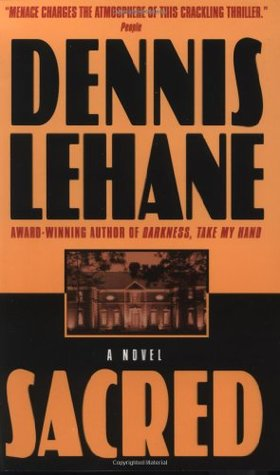



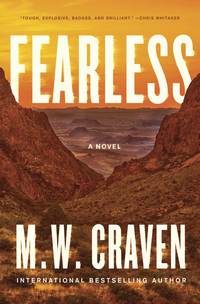



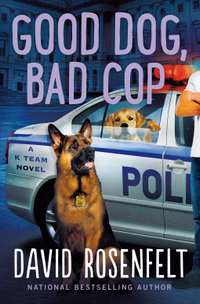

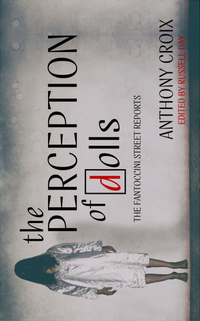

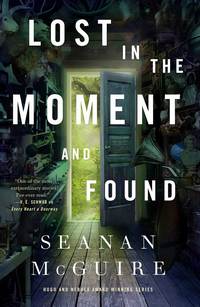

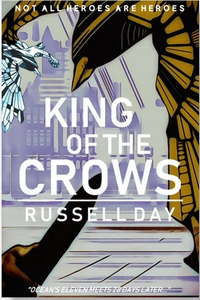

 Grab a book, any book.
Grab a book, any book.